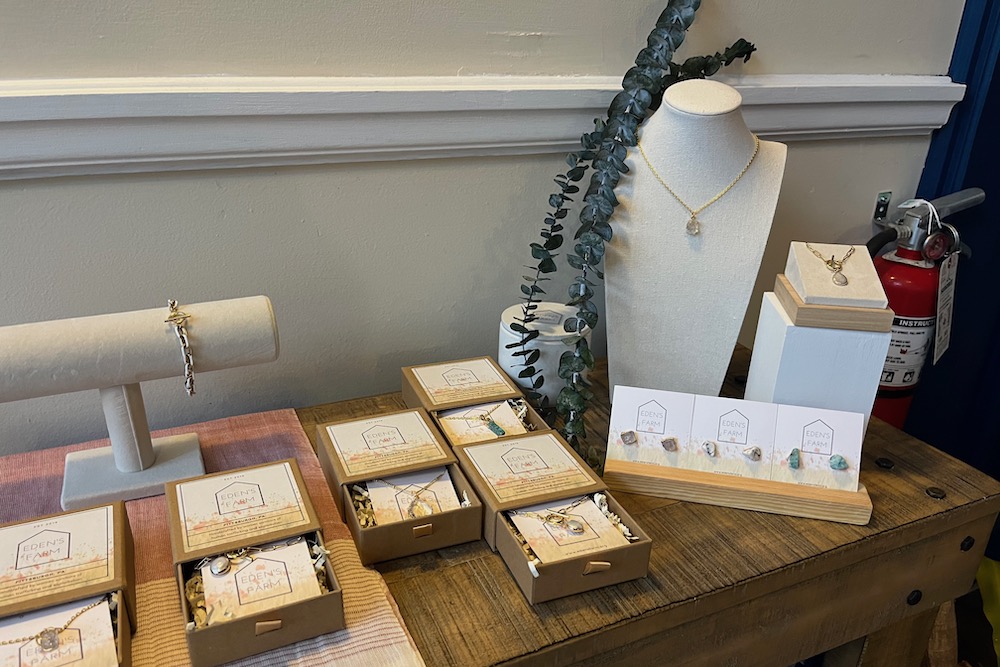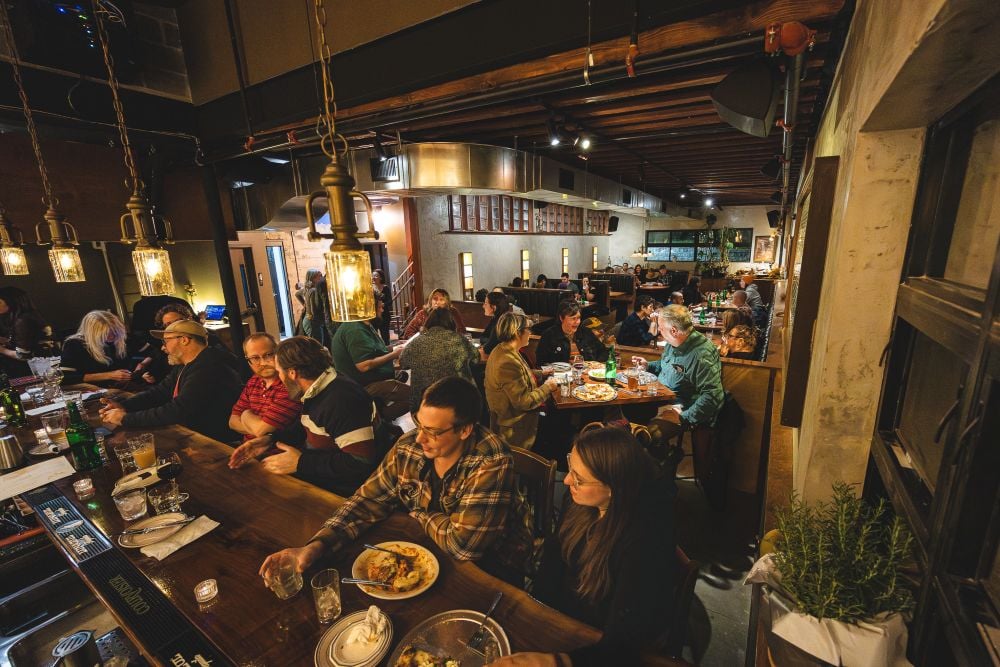Eden’s Farm Revolutionizes Assistance for Survivors of Human Trafficking in Pittsburgh
Founded by Annalisa Gibbs in 2019, Eden’s Farm uses community outreach to find and help at-risk individuals.

EDEN’S FARM’S SPACE IN BRADDOCK FUNCTIONS AS A STOREFRONT AND “JUSTICE ENTERPRISE.” | PHOTO BY GABRIELA HERRING
Ever since the seventh grade, Annalisa Gibbs has known that she wanted to run a home for women in need.
For Gibbs, growing up in Thailand meant exposure to exploitation at an early age, seeing its impact in her community whether through sex trafficking, labor trafficking and commercial sexual exploitation. After she moved to the United States, where she earned her bachelor’s degree in nursing, she started taking steps to turn her dream into a reality.
In 2019, she founded Eden’s Farm, a Pittsburgh-based nonprofit that supports victims of human trafficking. The nonprofit uses community outreach to find survivors most in need of their services, including a drop-in center and residential housing program.
In July, Eden’s Farm opened a space in Braddock that functions as both a storefront — selling artisanal goods made by victims of trafficking to support the nonprofit’s operations — and what Gibbs calls their Justice Enterprise: a safety net that helps people experiencing trauma adjust to workplace expectations.
“If somebody was being released from jail, how are they expected to find a job to pay for housing? Meanwhile they have a record [and are] trying to survive. So, what people go back to is what they know what to do, which is posting ads and being exploited all over again to make the rent,” says Gibbs.
“It’s just this vicious cycle of trying to climb out of it, which is practically impossible.”
Gibbs and a small group of supporters began with outreach, targeting strip clubs as trafficking hotspots. They made weekly trips to the clubs and brought dessert to connect with the women, most of whom were single mothers with children under the age of 5.
Connecting with these women, Gibbs says, “It really catapulted us into moving faster.”
Gibbs recognizes that sex work can be regarded as empowering and is an industry that some people voluntarily choose. “However, we view it as if there were more resources for women, more opportunities and more education, then that wouldn’t be the first pick,” Gibbs says.
Gibbs and her partners gained enough momentum through their outreach and grant applications that they were able to purchase a residential property in 2022, which offers a two-year program providing holistic therapeutic care to up to 20 women at a time.
The residential program also provides case management, mental health services, legal advocacy and a savings matching program.
Beyond their outreach and housing services, Eden’s Farm has a drop-in center with a free clothing store for women and their babies; it also offers meals, showers, internet access and peer-support groups.
In January, Eden’s Farm will be launching an educational apprenticeship program for survivors to transform their trauma and experiences into empowerment to help them spread awareness.
“[Trafficking] really can happen to everybody or anyone, and it happens to those who have more vulnerability stacked up against them,” says Gibbs. “People need to be more engaged — this work really propels and heals communities.”
Volunteer opportunities are posted on Eden’s Farm’s website, and they accept donations of household cleaning supplies for their residential program. On Dec. 14, they’ll host their third-annual Winter Tea fundraiser, which supports their residential program, at 436 S. Main St. in the West End.










